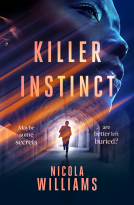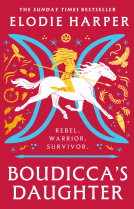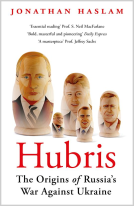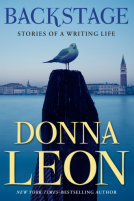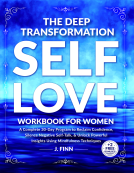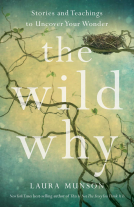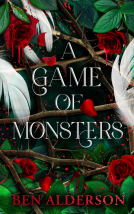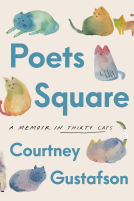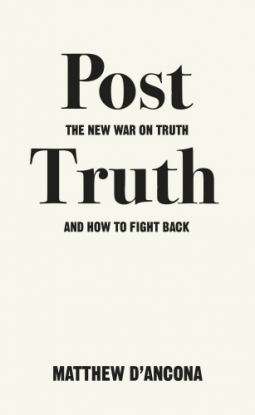
Post-Truth
The New War on Truth and How to Fight Back
by Matthew d'Ancona
This title was previously available on NetGalley and is now archived.
Send NetGalley books directly to your Kindle or Kindle app
1
To read on a Kindle or Kindle app, please add kindle@netgalley.com as an approved email address to receive files in your Amazon account. Click here for step-by-step instructions.
2
Also find your Kindle email address within your Amazon account, and enter it here.
Pub Date May 11 2017 | Archive Date Jun 29 2017
Penguin Random House UK, Ebury Publishing | Ebury Press
Description
Welcome to the Post-Truth era— a time in which the art of the lie is shaking the very foundations of democracy and the world as we know it. The Brexit vote; Donald Trump’s victory; the rejection of climate change science; the vilification of immigrants; all have been based on the power to evoke feelings and not facts. So what does it all mean and how can we champion truth in in a time of lies and ‘alternative facts’?
In this eye-opening and timely book, Post-Truth is distinguished from a long tradition of political lies, exaggeration and spin. What is new is not the mendacity of politicians but the public’s response to it and the ability of new technologies and social media to manipulate, polarise and entrench opinion. Where trust has evaporated, conspiracy theories thrive, the authority of the media wilt and emotions matter more than facts .
Now, one of the UK’s most respected political journalists, Matthew d’Ancona investigates how we got here, why quiet resignation is not an option and how we can and must fight back.
Available Editions
| EDITION | Other Format |
| ISBN | 9781785036873 |
| PRICE | £6.99 (GBP) |
| PAGES | 176 |
Featured Reviews
Fake news. Alternative facts. Post truth. Three terms to strike a chill into the heart. Despite the concept of 'post truth' having only really burst into our cultural consciousness within the past year or so, over the scant 176 pages of his book, Matthew D'Ancona makes it clear that we have been headed this way for a while. Former editor of The Spectator, D'Ancona is a journalist with a formidable CV. Unusually for me, I had mixed feelings on whether I would want to actually pick this up (on the one hand, I like to be informed but on the other, I have found most of the major news stories over the past year unutterably depressing) but reading the accompanying Guardian article on key 'post-truth' terms, I decided to put my faith in D'Ancona to explain the topic without making me want to move to a small Hebridean island and remove myself from the Internet forever. While there are times when Post Truth does feel a little like diving into an unheated swimming pool, D'Ancona manages to be both engaging and informative whilst also having practical solutions for how best we can move forward. One of the more necessary reads of our times, D'Ancona's book is a handbook for survival and a well-written one at that.
Myself, I have always been something of a stickler. I can absolutely kill an anecdote by adding too much detail - I struggle to refer to a person within a story as a 'friend' rather than offering the more precise and accurate note of 'my third-cousin-once-removed' or 'my next-door-neighbour's niece's husband'. Even more irritatingly, as a child, if I heard other people using the same verbal short-hand, I would immediately feel the urge to correct them, unable to stomach the untruth. This is not a way to make or indeed keep friends. Also unhelpful was that while in sixth form, I read virtually the entirety of Snopes and could chirpily debunk a lot of the hilarious or terrifying news items which tended to pop up in people's inboxes in the early 2000s. Facts are not fun. They spoil a good story. People prefer to believe in the untruth, it is more emotionally satisfying. However, D'Ancona explains that the way that this 'emotional necessity trumps strict adherence to the truth' is what has got us to where we are now.
Unsurprisingly, D'Ancona cites his sources with great care throughout. The stories pumped around the world to discredit Hilary Clinton, the 350 million that was never going to go to the NHS instead, the dossier that was either beefed-up, sexed-up or the rantings of a taxi driver - these are all stories which we know to be false but which have caused little or no harm to those who originally peddled the lies. D'Ancona cites one of George W Bush's aides who told a New York Times journalist that his approach was lamentably outdated since being in the 'reality-based community' is not the way the world works any more. And while people still concerned with truth are studying reality, those such as George W Bush's administration were ready to 'act again, creating other new realities'. We see this every day. It is impossible to keep up with.
D'Ancona charts the loss of faith from 2008, when the financial crisis hit but while those on the bottom rungs of society might suffer, it became clear that the big corporations would not be allowed to fail. Those at the top would never pay the piper but they would call the tune. Then there was the MP expenses scandal, causing people to lose faith in our elected representatives. Then came the phone-hacking saga which undermined our faith in the media. Then Operation Yewtree, which showed that not only were big corporations such as the BBC turning a blind eye to unspeakable crimes but so many of the nation's most celebrated entertainers were not who they appeared to be. So we lost faith. We stopped believing. We no longer trusted 'experts'.
D'Ancona keeps the detached tone of the observer but as he chronicles the bizarre presidential campaign and subsequent victory of Mr Donald Trump, he finds it difficult to hide the extent to which he is, like the rest of us, both baffled and appalled. Breaking the garble that has come out of the Orange One down to its components, D'Ancona notes how Trump can argue that 'sources of the stories are authentic - bt the reports were nonetheless fake. Truly, we [are] through the looking glass'. Still, this is not really a book about Trump, but rather how we and those around us perceive the world. As D'Ancona observes, Trump is the symptom rather than the cause and post-truthism will not be cured when he leaves office, whenever that is.
There are certain issues raised by the book however which are particularly alarming. The fact that Alex Jones, the right-wing host of Infowars, is known to be in contact with Donald Trump disturbed me deeply. This is the man who purports to believe that the Sandy Hook massacre was faked and that the Clintons are involved in Satanic child abuse. I found it alarming too that in 2005, the American Museum of National History was unable to secure corporate sponsorship for its exhibition on Darwin because all the companies approached feared a backlash from creationists. By contrast, in 2007, a 27 million dollar creationist museum was built in Kentucky, with bumper stickers sold there stating 'We're Taking Dinosaurs Back'. As in, returning them. Because you can change scientific history if you don't like it. It reminds me of a university debate I attended at around the same time, 'This House Prefers Darwin to God', where a girl stood up and said that she was 'not happy' to be descended from a chimp and so she would be voting against the motion. Another girl stood up and said that the previous year she had been 'not happy' about having a 9am class, that she was currently 'not happy' about George W Bush being the president of her country, but that the simple fact of being 'not happy' about something cannot make it untrue.
I find myself wondering too at the selfishness of the attitude behind a lot of this - it is as if a truth which is unpalatable can simply be repackaged. I remember a woman around the 2010 election complaining on the news about how the results had not reflected her vote, and that had she been in a restaurant and been served chocolate cake when she had ordered cheesecake, something would be done about it. Have we become so self-absorbed that we can no longer accept a majority decision, or, far worse, a compromise? D'Ancona suggests that the American election result, and by extension the Brexit result, was the product of a disenfranchised, disillusioned populace sending the biggest 'F***k You' to their government in history. How have we got to the point where people are so willing to go against the facts and hurt their own prospects out of such pointless spite? Have we become such children that we sigh heavily during the boring facts about how far Britain's GDP will dip under Brexit and that most households will be around £300 worse off per year, and just giggle away at funny Mr Farage with his pint? Has our attention span become so microscopic?
Still, anyone could write a searing take-down of reasons why truth, facts and indeed reality have come under threat. What makes D'Ancona's book worth reading is that it is not just an analysis of the situation, but also an attempt to offer a solution. Post Truth is a piece of political advocacy, independent of specific political affiliation, with the final chapter entitled 'The Stench of Lies: Strategies to Defeat Post Truth'. I remember being struck back in my teaching days by the way in which children struggled to discern the differences between reliable and unreliable sources on the Internet. On one particular occasion, an ICT lesson returned three different answers for the question 'When was Churchill born?' As D'Ancona explains, this needs to be a key part of education. He points out that we save time in that answers can be found in our fingertips whereas for most of my school days I had to trawl through books. However, there is a balance to this - we need to add in time for fact-checking. This takes patience, but it needs to become embedded, with D'Ancona rightly observing, 'Learning how to navigate the web with discernment is the most pressing cultural missing of our age'.
Ending with 'Reasons to be Cheerful', Post Truth is an upbeat read, reminding us that all is not lost and trying to point out areas of recovery. Kellyanne Conway's exhortation to believe in 'alternative facts' sent Nineteen Eighty Four rocketing up the bestseller lists. Satire too can expose weakness and raise awareness. Deborah Lipstadt did not lose her case against David Irving and the recent film Denial reignites that point. There are 'science' celebrities such as Professor Brian Cox who can help make facts 'sexy' again (if they ever were). Still, I came away feeling afraid, fretting over the ever shrinking news cycle and goldfish memory that the media seems to assume we have - if they have to get the story out before we lose interest, there is no time for 'research' and due diligence, which leaves us with something that feels true but may not be. Post truth.
 Anita W, Reviewer
Anita W, Reviewer
I'd like to think I'm politically aware, with well considered views. As a student I was at the Sorbonne during the May riots of 68, I protested in Grosvenor Square about American foreign policy and I've followed political change,with interest, over some 50 years. But in latter years, I've become increasingly disenchanted and now find it difficult to engage with any political party. With that as my starting point, I found this book a concise, informed and objective analysis of the current mess of political garbage.
I'm increasingly frustrated by mainstream media reporting. There's little fact, a lot of opinion, much of which is ill informed and inaccurate, and there's no substance to any of the political parties. Once upon a time, a labour voter was distinct from and very different to a Tory. Both had clear ideals, values and aspirations. The electorate could look at a manifesto and determine the extent to which a personal view accorded with party politics and vote accordingly. But something went horribly wrong; after years of Thatcherism, a Blair regime offered little difference. Hubris replaced political commitment and that's further degenerated to politics by buzzword. I'm sick of Brexit; in the 1970s, entry to the Common Market was one of numerous political issues. There was a referendum, people voted to join and the result was accepted. Domestic politics then took precedence and political parties had clear policy on law reform, trades Union, nationalisation, social care, benefits funding, taxation, defence spending etc.
Now, we seem to be ruled by social media 'trends' and horribly biased reporting by both broadsheet and red tops. It's difficult to find truth and fact, which should be the currency, rather than the hyperbole of ill informed opinion. But a brain dead mass fed a daily Kyle diet is happily accepting of any pap pumped in their direction. They can only assimilate sentences of two words and then only when force fed. I'm no academic, and I've no axe to grind, but I found the text thought provoking and objective.
This book explores a raft of issues in eloquent detail and it's one of the best non fiction titles I've read in a while.
My thanks to ebury for a review copy via Netgalley.
 Hannah W, Reviewer
Hannah W, Reviewer
Your political viewpoint will absolutely effect how you feel about this book.
Personally, I have always found it shocking that so many people expect politicians to lie. Every conversation I have had at work about the upcoming UK general election has revolved around 'well they all tell lies anyway' and it makes me really sad that politics has come into this horrific era of 'fake news' and 'alternative facts'.
This is a well written, seemingly well researched collection of essays surrounding this weird age we are currently in and I enjoyed reading it.
There is an incredibly interesting piece on how social media and technology in general has led to Holocaust denial and antisemitism being far more normalised.
I read this in relation to Brexit, which I voted against and still very much wish wasn't happening, and it was very relevant. There is a section talking about how facts aren't enough in politics any more and that couldn't be more accurate. I still can't stop thinking about that stupid bus claiming that £350million a week would be going to the NHS and the fact that their budget has since been cut.
This book of essays is enlightening, academically researched and incredibly timely. I would definitely recommend it to anyone interested in politics and think it would be a good starting point for people who want to become more involved but don't really understand it.
 Dave W, Reviewer
Dave W, Reviewer
Well this is a insightful book of the present age. I should start by stating I have 2 big differences with the author Matthew, first I voted for Briexit and my views on faith. But to allow these to hinder my reading and agreement with the book would be a great shame. I think that Matthews take and writing on our present age is spot on in so many ways and the fact that we follow that which fits our ideas rather than the truth is there far all to see. The truth becomes what we believe rather than the true truth.
This book is both insightful and challenging and I really recommend it to you, you need a open mind which is truly hard for many to be but if you do then this can be a stepping stone in your life to make a real difference in the society around you. The society around you is that which is where you devote your time and energy and no longer defined by land borders as social media testifies to but more to do with those whom you interact with the most and can be from anywhere on earth. Read it I dare you.
A shocking, timely, clever but ultimately hopeful book from one of my favourite political writers. The author takes the reader through a history of post-truth which shows it's not a recent phenomena. Found particularly interesting the chapter linking postmodernism to post-truth culture. Highly recommended
 Douglas O, Reviewer
Douglas O, Reviewer
This book is astonishingly perceptive and measured. The author is not crying doom,he is pointing out how change has affected the way we think and alerting us to how we can handle it all. Apart, from not liking Trump very much, his arguments are balanced and thoughtful. He draws on previous thinking in a careful and balanced way. This book should be required reading for as many people as possible in order to stem misunderstandings and kill off misleading information.
